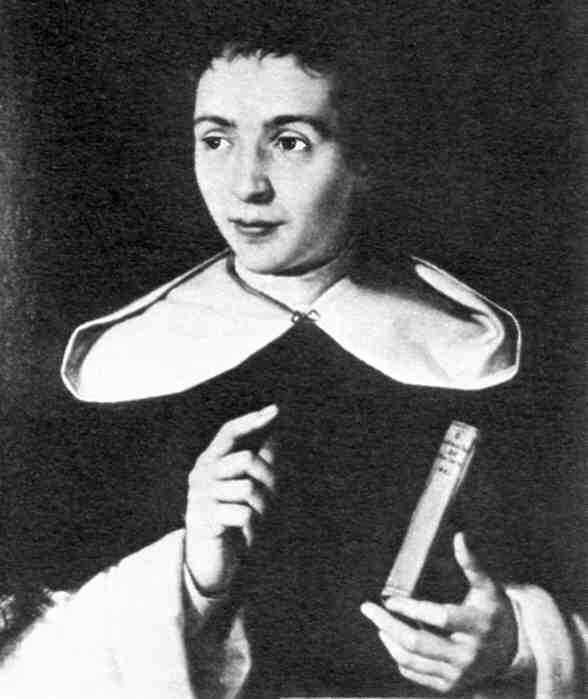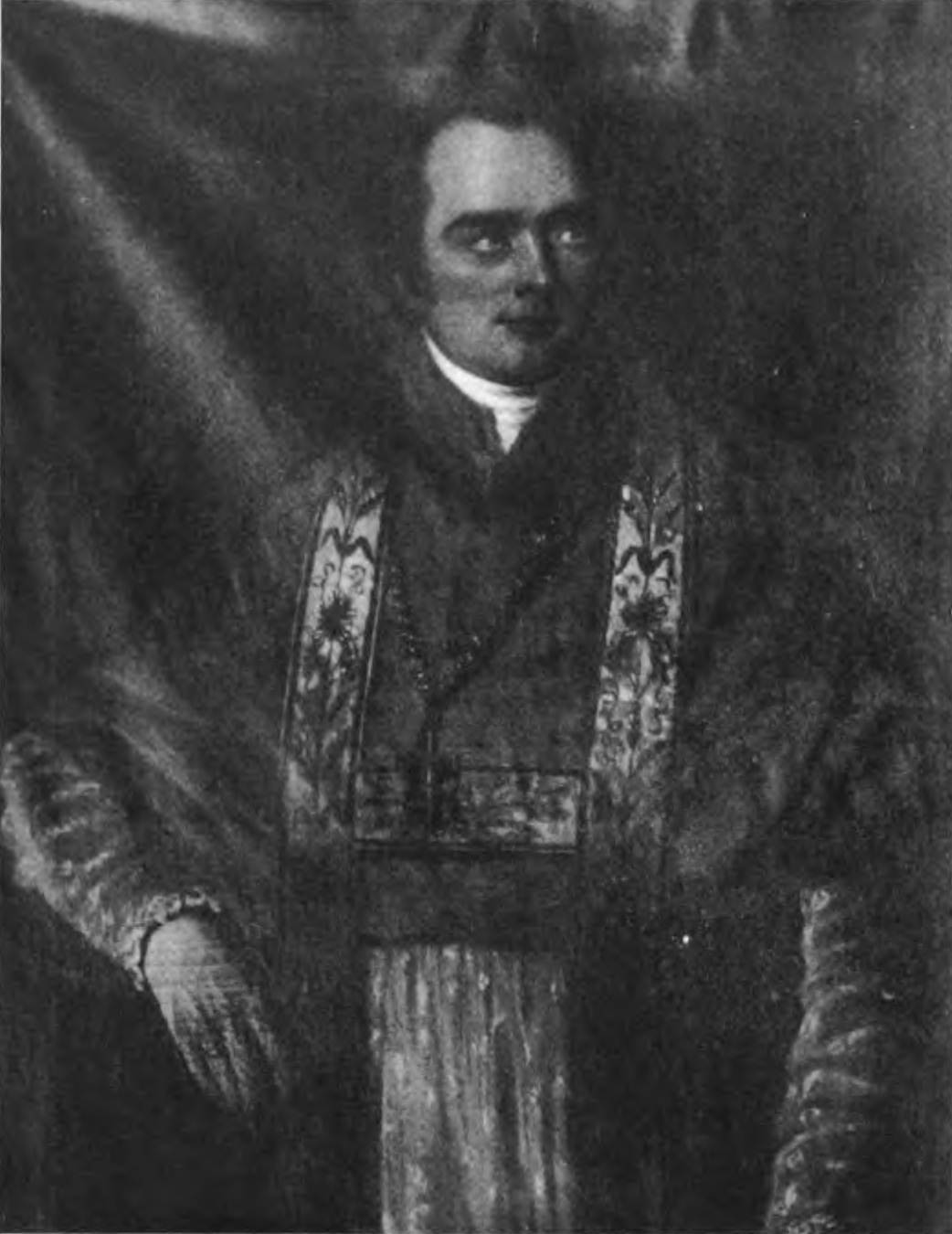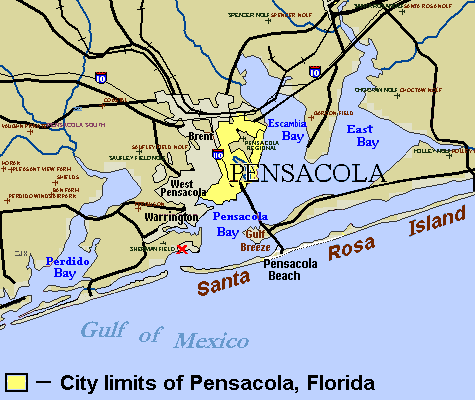|
Michael Portier
Bishop Michael Portier (September 7, 1795, Montbrison, Loire, Montbrison, France – May 14, 1859, Mobile, Alabama) was a Roman Catholic bishop in the United States and the first Archdiocese of Mobile, Bishop of Mobile. He immigrated to the US in 1817, being ordained there. He later founded many parishes and Catholic institutions in Alabama and Florida, particularly in Mobile. Among them was Providence Hospital (Mobile), Providence Hospital. He also recruited religious orders of men and women to teach and care for parishioners. Biography Michel Portier was born in Montbrison in the diocese of Lyon, France. He was a student at the seminary in Lyon when recruited by Bishop Dubourg Louis William Valentine Dubourg, for the American mission. He immigrated to the United States at the age of 22 in 1817 with the goal of becoming a priest. He sailed from Bordeaux with Bishop Dubourg and about thirty companions on the French ship of war ''Caravane'' and landed after sixty-five days at ... [...More Info...] [...Related Items...] OR: [Wikipedia] [Google] [Baidu] |
Catholic Church
The Catholic Church, also known as the Roman Catholic Church, is the largest Christian church, with 1.3 billion baptized Catholics worldwide . It is among the world's oldest and largest international institutions, and has played a prominent role in the history and development of Western civilization.O'Collins, p. v (preface). The church consists of 24 ''sui iuris'' churches, including the Latin Church and 23 Eastern Catholic Churches, which comprise almost 3,500 dioceses and eparchies located around the world. The pope, who is the bishop of Rome, is the chief pastor of the church. The bishopric of Rome, known as the Holy See, is the central governing authority of the church. The administrative body of the Holy See, the Roman Curia, has its principal offices in Vatican City, a small enclave of the Italian city of Rome, of which the pope is head of state. The core beliefs of Catholicism are found in the Nicene Creed. The Catholic Church teaches that it is the on ... [...More Info...] [...Related Items...] OR: [Wikipedia] [Google] [Baidu] |
Archbishopric New Orleans Louisiana DetPub
In church governance, a diocese or bishopric is the ecclesiastical district under the jurisdiction of a bishop. History In the later organization of the Roman Empire, the increasingly subdivided provinces were administratively associated in a larger unit, the diocese (Latin ''dioecesis'', from the Greek term διοίκησις, meaning "administration"). Christianity was given legal status in 313 with the Edict of Milan. Churches began to organize themselves into dioceses based on the civil dioceses, not on the larger regional imperial districts. These dioceses were often smaller than the provinces. Christianity was declared the Empire's official religion by Theodosius I in 380. Constantine I in 318 gave litigants the right to have court cases transferred from the civil courts to the bishops. This situation must have hardly survived Julian, 361–363. Episcopal courts are not heard of again in the East until 398 and in the West in 408. The quality of these courts was l ... [...More Info...] [...Related Items...] OR: [Wikipedia] [Google] [Baidu] |
Cathedral Basilica Of The Immaculate Conception, Mobile
The Cathedral Basilica of the Immaculate Conception (french: Cathédrale de l'Immaculée-Conception de Mobile) is a cathedral serving Roman Catholics in the U.S. city of Mobile, Alabama. It is the seat of the Archbishop of the Roman Catholic Archdiocese of Mobile. The cathedral is named for Mary, mother of Jesus, under her title, Our Lady of the Immaculate Conception. It is listed on the National Register of Historic Places as a contributing property to the Church Street East Historic District and Lower Dauphin Street Historic District and is listed on the Historic Roman Catholic Properties in Mobile Multiple Property Submission History Mobile’s Cathedral Parish was established on July 20, 1703, by Jean-Baptiste de la Croix de Chevrières de Saint-Vallier, Bishop of Quebec. Bishop de Saint-Vallier named Father Roulleaux de La Vente, first pastor of the parish church, which was located at the French settlement of Mobile at the citadel of Fort Louis de la Louisiane. The par ... [...More Info...] [...Related Items...] OR: [Wikipedia] [Google] [Baidu] |
Mathias Loras
Mathias Loras (August 30, 1792 – February 19, 1858) was an immigrant French priest to the United States and the first bishop of the Dubuque Diocese in what would become the state of Iowa. Early life and ministry Pierre-Jean-Mathias Loras was born in Lyon, France, on August 30, 1792. He was a descendant of a French noble of the robe family. During the Reign of Terror in France, Loras' father and 17 members of his family were put to death by guillotine. As a young man, he studied for the priesthood, along with St. John Vianney (Curé d'Ars). He was ordained a priest around 1817 by Cardinal Joseph Fesch for the Archdiocese of Lyon. He soon became the Superior of the seminary of Largentiere. He subsequently resigned from this position to join a group of priests conducting parish missions in the Archdiocese of Lyon. Bishop-elect Michael Portier of the Mobile had gone to France to recruit priests for his diocese. On November 1, 1829, he left with Portier for Alabama. They reach ... [...More Info...] [...Related Items...] OR: [Wikipedia] [Google] [Baidu] |
Roman Catholic Sacraments
There are seven sacraments of the Catholic Church, which according to Catholic theology were instituted by Jesus and entrusted to the Church. Sacraments are visible rites seen as signs and efficacious channels of the grace of God to all those who receive them with the proper disposition. The sacraments are often classified into three categories: the sacraments of initiation (into the Church, the body of Christ), consisting of Baptism, Confirmation, and the Eucharist; the sacraments of healing, consisting of the Sacrament of Penance and the Anointing of the Sick; and the sacraments of service: Holy Orders and Matrimony. Enumeration History The number of the sacraments in the early church was variable and undefined; Peter Damian for example had listed eleven, including the ordination of kings. Hugh of Saint Victor enumerated nearly thirty, although he put Baptism and Holy Communion first with special relevance. The current seven sacraments were set out in the Sentences by ... [...More Info...] [...Related Items...] OR: [Wikipedia] [Google] [Baidu] |
Eucharist
The Eucharist (; from Greek , , ), also known as Holy Communion and the Lord's Supper, is a Christian rite that is considered a sacrament in most churches, and as an ordinance in others. According to the New Testament, the rite was instituted by Jesus Christ during the Last Supper; giving his disciples bread and wine during a Passover meal, he commanded them to "do this in memory of me" while referring to the bread as "my body" and the cup of wine as "the blood of my covenant, which is poured out for many". The elements of the Eucharist, sacramental bread ( leavened or unleavened) and wine (or non-alcoholic grape juice), are consecrated on an altar or a communion table and consumed thereafter, usually on Sundays. Communicants, those who consume the elements, may speak of "receiving the Eucharist" as well as "celebrating the Eucharist". Christians generally recognize a special presence of Christ in this rite, though they differ about exactly how, where, and when Chr ... [...More Info...] [...Related Items...] OR: [Wikipedia] [Google] [Baidu] |
John England (bishop)
John England (September 23, 1786, in Cork, Ireland – April 11, 1842, in Charleston, South Carolina) was an Irish-born American prelate of the Roman Catholic Church. He served as the first bishop of the Diocese of Charleston, which then covered three Southern States. England previously served as a priest in Cork where he was active in the movement for Catholic Emancipation in the United Kingdom. As bishop in Charleston, he ministered to and provided education for many free and enslaved African-Americans. Life in Ireland Early life John England was born on September 23, 1786, in Cork, Ireland. As a child he attended a private school run by a Protestant teacher, who referred to him as "the little Papist". When he was older, England pursued a law career, studying with a barrister for two years. Deciding to prepare for the priesthood, England entered the Theological College of Carlow in Carlow, Ireland on August 31, 1803. At age 19, in his second year at Carlow, En ... [...More Info...] [...Related Items...] OR: [Wikipedia] [Google] [Baidu] |
Pensacola, Florida
Pensacola () is the westernmost city in the Florida Panhandle, and the county seat and only incorporated city of Escambia County, Florida, United States. As of the 2020 United States census, the population was 54,312. Pensacola is the principal city of the Pensacola Metropolitan Area, which had an estimated 502,629 residents . Pensacola is the site of the first Spanish settlement within the borders of the continental United States in 1559, predating the establishment of St. Augustine by 6 years, although the settlement was abandoned due to a hurricane and not re-established until 1698. Pensacola is a seaport on Pensacola Bay, which is protected by the barrier island of Santa Rosa and connects to the Gulf of Mexico. A large United States Naval Air Station, the first in the United States, is located southwest of Pensacola near Warrington; it is the base of the Blue Angels flight demonstration team and the National Naval Aviation Museum. The main campus of the University of West F ... [...More Info...] [...Related Items...] OR: [Wikipedia] [Google] [Baidu] |
Parishes
A parish is a territorial entity in many Christian denominations, constituting a division within a diocese. A parish is under the pastoral care and clerical jurisdiction of a priest, often termed a parish priest, who might be assisted by one or more curates, and who operates from a parish church. Historically, a parish often covered the same geographical area as a manor. Its association with the parish church remains paramount. By extension the term ''parish'' refers not only to the territorial entity but to the people of its community or congregation as well as to church property within it. In England this church property was technically in ownership of the parish priest ''ex-officio'', vested in him on his institution to that parish. Etymology and use First attested in English in the late, 13th century, the word ''parish'' comes from the Old French ''paroisse'', in turn from la, paroecia, the latinisation of the grc, παροικία, paroikia, "sojourning in a foreign ... [...More Info...] [...Related Items...] OR: [Wikipedia] [Google] [Baidu] |
Vicar Apostolic
A vicar (; Latin: ''vicarius'') is a representative, deputy or substitute; anyone acting "in the person of" or agent for a superior (compare "vicarious" in the sense of "at second hand"). Linguistically, ''vicar'' is cognate with the English prefix "vice", similarly meaning "deputy". The title appears in a number of Christian ecclesiastical contexts, but also as an administrative title, or title modifier, in the Roman Empire. In addition, in the Holy Roman Empire a local representative of the emperor, perhaps an archduke, might be styled "vicar". Roman Catholic Church The Pope uses the title ''Vicarius Christi'', meaning the ''vicar of Christ''. In Catholic canon law, ''a vicar is the representative of any ecclesiastic'' entity. The Romans had used the term to describe officials subordinate to the praetorian prefects. In the early Christian churches, bishops likewise had their vicars, such as the archdeacons and archpriests, and also the rural priest, the curate who had the ''c ... [...More Info...] [...Related Items...] OR: [Wikipedia] [Google] [Baidu] |
Joseph Rosati
Joseph Rosati (30 January 1789 – 25 September 1843) was an Italian-born Catholic missionary to the United States who served as the first bishop of the Diocese of Saint Louis between 1826 and 1843. A member of the Congregation of the Mission, in 1820 he was appointed Provincial Superior over all the Vincentians in the United States. Early life Rosati was born in the town of Sora, then in the region of Campania, part of the Kingdom of Naples. He completed his education in 1807 and entered the Congregation of the Mission, commonly called the Vincentian Fathers, in 1808. He was ordained a priest in 1811. Rosati had taken up the study of Hebrew. Felix de Andreis, his friend and preceptor, advised Rosati to put aside Hebrew and take up English as he would need it in someday preaching in an English-speaking country.Clarke, Richard Henry. "Most Rev. Joseph Rosati, D.D.", ''Lives of the Deceased Bishops of the Catholic Church in the United States'', Vol. 1, P. O'Shea, 1872 The Apost ... [...More Info...] [...Related Items...] OR: [Wikipedia] [Google] [Baidu] |
Titular Bishop
A titular bishop in various churches is a bishop who is not in charge of a diocese. By definition, a bishop is an "overseer" of a community of the faithful, so when a priest is ordained a bishop, the tradition of the Catholic, Eastern Orthodox and Oriental Orthodox churches is that he be ordained for a specific place. There are more bishops than there are functioning dioceses. Therefore, a priest appointed not to head a diocese as its diocesan bishop but to be an auxiliary bishop, a papal diplomat, or an official of the Roman Curia is appointed to a titular see. Catholic Church In the Catholic Church, a titular bishop is a bishop who is not in charge of a diocese. Examples of bishops belonging to this category are coadjutor bishops, auxiliary bishops, bishops emeriti, vicars apostolic, nuncios, superiors of departments in the Roman Curia, and cardinal bishops of suburbicarian dioceses (since they are not in charge of the suburbicarian dioceses). Most titular bishops ... [...More Info...] [...Related Items...] OR: [Wikipedia] [Google] [Baidu] |

.jpg)








